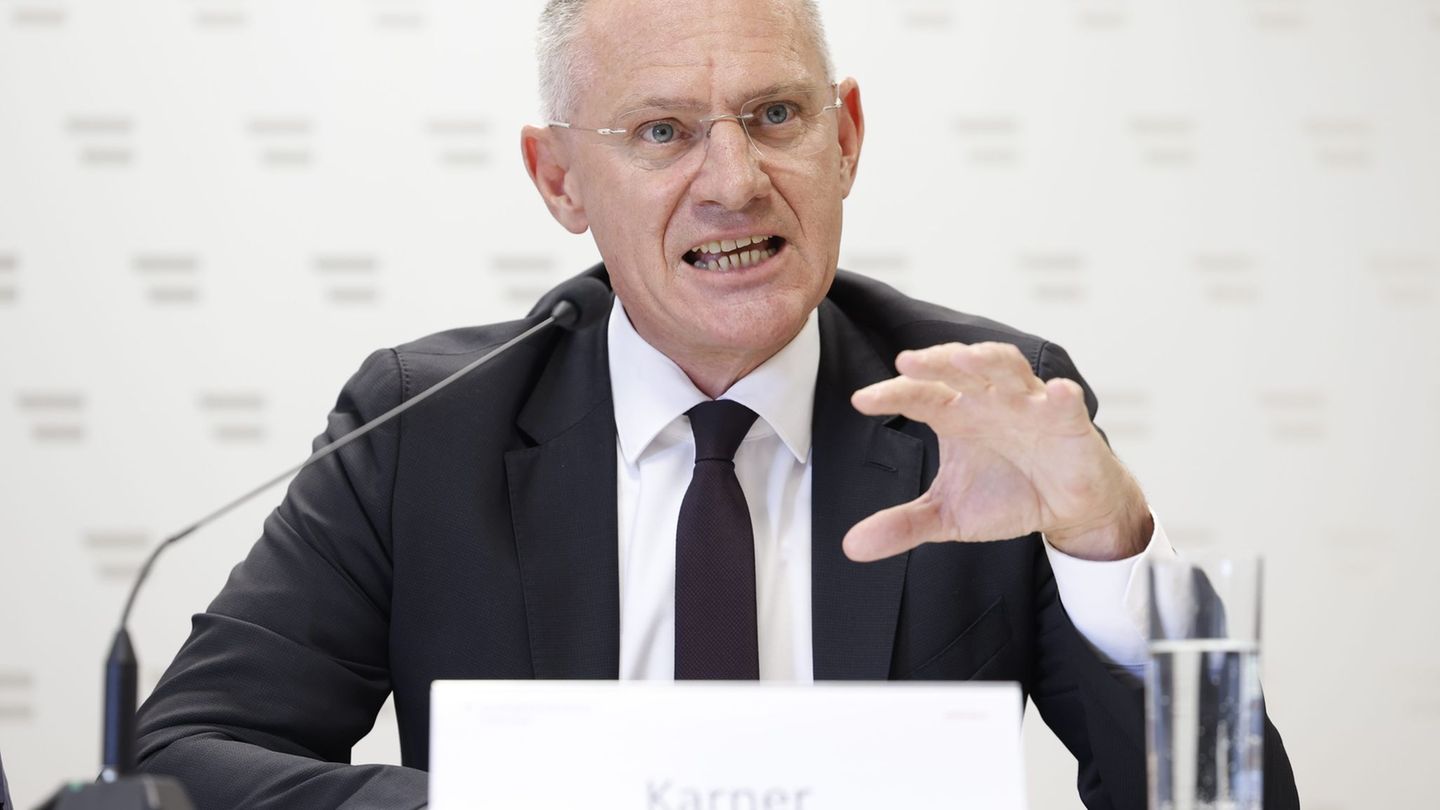But, as of last month, greater pessimism is noted in the financial sector, which became more evident from the exchange rate run that happened a few weeks ago, the poor dynamics of bonds and the rise in country risk. Given this panorama, City analysts analyze what the second semester will be like.
The calm of the dollar that was altered in recent days; a surplus generated through fierce adjustment, which is difficult to guarantee forward; controlled inflation based on recession that impacts economic activity and tariffs; the purchase of BCRA reserves thanks to unpaid imports; the problems passing laws which are the essence of the political and economic model that Javier Milei wants to implement; the constant noise with pro-government officials and the difficulty in managing and negotiating. All of these are the signs that are beginning to worry the market because, beyond the achievements that Milei and the Minister of Economy, Luis Caputo, can boast about (the surplus and inflation at the forefront), what worries the market is the possibility of continuity that these results have.
Given this context, The promise of a “V” economic recovery seems more distant. And, as the economist Miguel Kiguel warned a few days ago, the rise of the dollar that was observed in recent weeks and the country risk “can delay the recovery” of economic activity. Likewise, he anticipated that the second semester “It’s going to be very complicated because of the payments that the country must face,” which needs more dollars and cannot get them.
A macroeconomy with many inconsistencies
In that line he points the economist of the Development Research Foundation (FIDE) Pedro Gaite when he indicated to Ambit that it is likely “that the second semester will be very complicated because there are inconsistencies in the economic program and on several macro correction fronts.”
He detailed that the difficulty in the fiscal aspect It comes from the way in which the fiscal surplus is being obtained, at the cost of a cut that is unlikely to last over time; in the monetary, because the blender, with the lowering of rates, has a limit that was demonstrated with the jump of parallel dollars, but warns that, “within all that, the lack of dollars is the main problem that we have as a country ”.
Thus, as stated by the economist and director of MyR Consultores, Fabio Rdríguez, The second semester requires whether or not to “accumulate reserves seriously, lower the country risk with credibility and agree with the International Monetary Fund (IMF) on a new program.” Otherwise, the Government will have to restructure the debt and warns that, in this context, “all the precarious stabilization that it has achieved will collapse.”
The need to get dollars and the exchange rate
A fact that economists have been pointing out for some time is that, hand in hand with the appreciation rate fixed at 2% monthly of the exchange rate established by the Central Bank (BCRA), the Government created a problem, given that, as we see today, “the settlement is very low and that makes it difficult for them to enter reserves into the BCRA,” for Gaite.
In addition, the dollar blend takes away a percentage of your dollar income through the official exchange market. According to what this media learned, this 20% settlement mechanism through the financial dollar represents 15% less foreign exchange income for the Central throughout this year.
“If they don’t leave the ‘crawling peg’ of 2% The problem of lack of dollars is going to get bigger. They are at the crossroads between accumulating dollars and the need to correct the exchange rate and the effect that this can have on inflation,” says Gaite.
In this scenario, for Eco Go economist Sebastián Menescaldi, “In the second semester, surely, the blow of the hardest part of the recession in social terms will be felt strongly.”
The fall in employment and unemployment: key to the social climate
The fall in employment and the adjustment of relative prices They are going to impact this part of the year with greater force and it is very likely that many companies will begin to make reductions in their workforce, which will have a direct impact on unemployment.
In the same sense, the economist Fabián Medina anticipates that, “with less and less blank work, the problem that begins to appear is very high unemployment and the growth of poverty.” He warns that this is very worrying because it is a great risk of social crisis. Furthermore, he points out that, without economic activity, inflation will be higher because salaries will be more depressed and that opens up a very complex scenario at a social level.
Generating expectations, a key challenge for the second semester
In that sense, for Menescaldi, it is key the panorama that the Government manages to generate going forward. “We have to see how people support this and, so that this does not lead to strong discontent, Milei has to regenerate expectations,” warns Menescaldi.
Thus, he considered that the Government You will have the challenge of generating positive expectations in this new part of the year. That is, reaffirm that everything that society has been suffering has an end. Likewise, consider that The approval of its Bases law must be guaranteed.
“He needs to demonstrate with concrete facts that he can get out of the swamp where he has been stuck since mid-May, attributable to shortcomings on three fronts: the political (because he does not pass laws), the management (improvised and uncoordinated) and economic inconsistencies (the anchors of the plan they are not sustainable, especially the exchange rate),” summarizes Rodriguez.
The Bases law, another pending
Along the same lines, for Medina, “the second part of the year is very tied to what happens with the basic law” and he anticipates that, if it comes out, it will give the Government the possibility of continuing with its adjustment and rearrangement project. of its economic program. This, in turn, will give you the opportunity to try to find the dollars you need with the Large Investment Incentive Regime (RIGI), although that is a process that will take time.
In the meantime, he must “weather the problem of the external front and the exchange rate, although it will have to be seen how it cushions the possible impact on the path of deceleration of inflation,” says Gaite. However, he warns that economic activity is at serious risk and continuing on this path can be risky. For him, “the main problem is the lack of dollars that will continue unless they get financing from somewhere, which seems difficult.”
Source: Ambito




